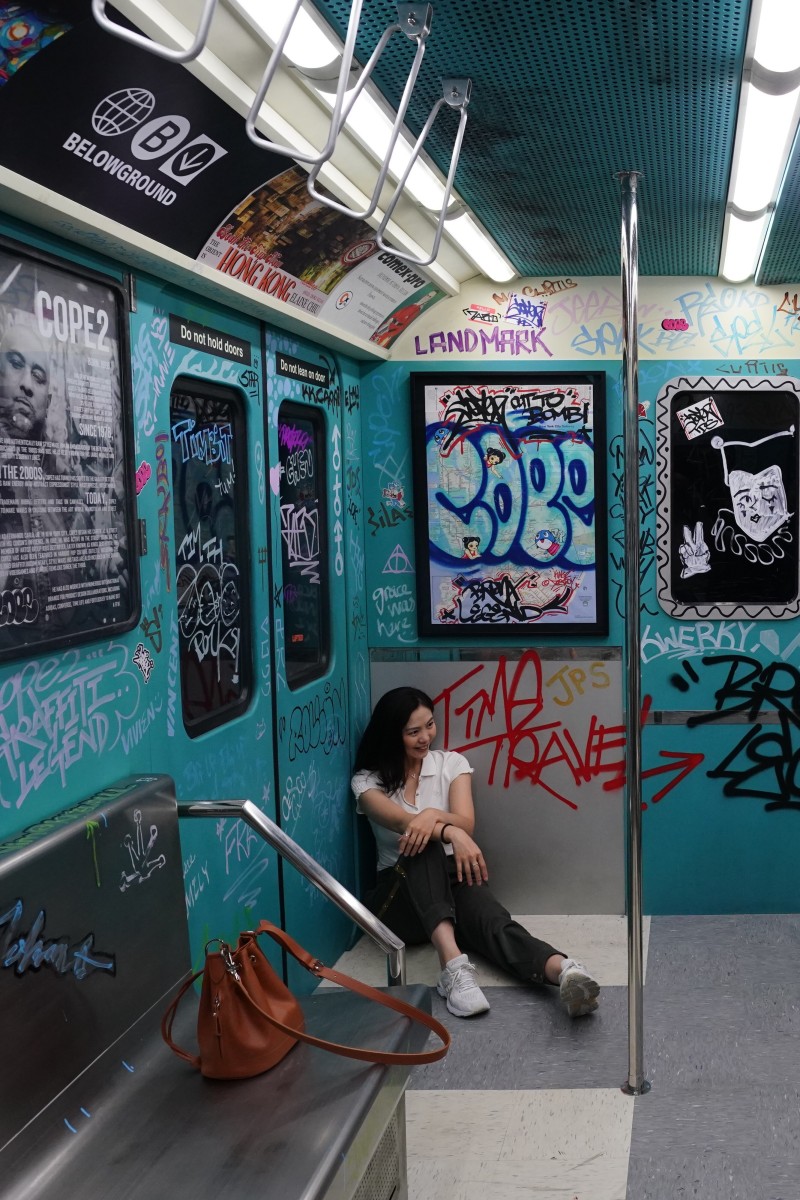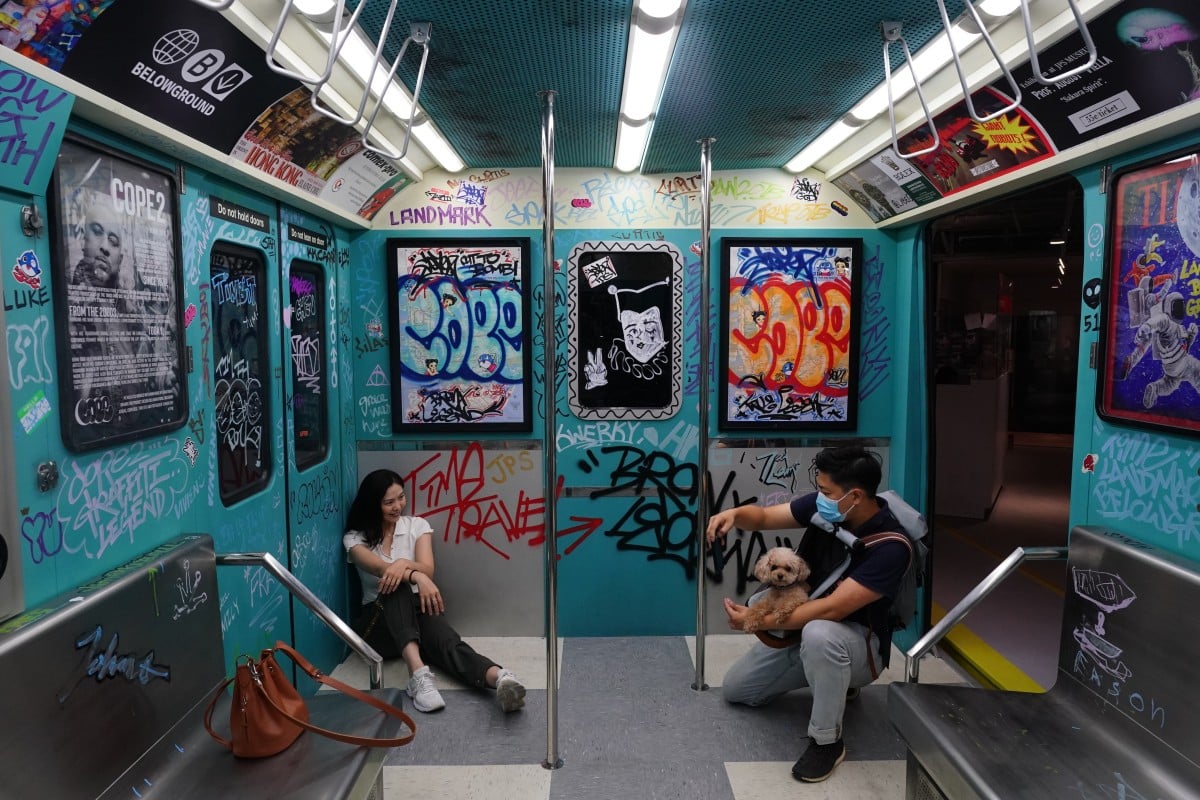
Face off: Is it the Hong Kong government’s job to support the arts sector?
- Each week, two of our readers debate a hot topic in a parliamentary-style debate that doesn’t necessarily reflect their personal viewpoint
- This week, they discuss whether promoting and funding the arts should be a government responsibility
 A photo from the Exhibition BelowGround by Cope2, Afa Annfa and Chino Lam at JPS Art Gallery, Landmark, Central. Photo: SCMP/Felix Wong
A photo from the Exhibition BelowGround by Cope2, Afa Annfa and Chino Lam at JPS Art Gallery, Landmark, Central. Photo: SCMP/Felix WongReese Wong, 17, Sha Tin College
How do we measure the value of the “arts”? Firstly, the arts sector - when compared to other more commercially oriented sectors - is not underpinned by the same “profit motive”. Rather than quantitative returns on investment, the value of the arts is often qualitative. It includes aesthetics and cultural value. With such priorities, the arts sector would struggle without government support - be it financial or otherwise.
But why should the Hong Kong government support the arts sector in the first place?
Do Instagram stories bring people closer together?
Government investment in the arts sector is about “public interest”. This would lead to a more equitable distribution of resources, whereas the alternative of private patronage may only serve to benefit the artistic interests of an elite few.
We must ensure the accessibility of arts for the “common good” while enriching the lives of local citizens.
Some people may argue that government divestment from the arts would stimulate the sector to become more innovative, helping it to become commercially sustainable and aligned with the principles of supply and demand.
Are textbooks outdated in Hong Kong?
However, under this model, only “popular” or mainstream art would thrive (what people “want” to see), whereas ancient culture and heritage, or less well known arts would be sidelined.
This would also likely mean that those in the arts sector would have less incentive for experimentation and would instead turn to commercially popular art. This devalues the intrinsic, exploratory and creative nature of the arts.
I believe that the government is a unique stakeholder able to mediate between patronage, private investment and the commercialisation of art, helping to maintain a proper balance in the field. This is why it is the government’s responsibility to support the arts scene.
Crowds abide by social-distancing rules during Art Basel Hong Kong 2021, one of the city's largest art exhibitions. Photo: SCMP/Nora Tam
Yuhan Huang, 14, German Swiss International School
The Hong Kong government is not responsible for supporting the arts. This sector has many different parts, and is run by the passion of creative individuals. Government funding should not be a part of it.
Since it is widely recognised that the arts are essential to society, there should be no problem finding financing for them from voluntary sources.
This could include donations, corporate sponsorships and ticket sales. In fact, companies are very eager to support promising arts projects to promote their public image. For example, the Hong Kong Youth Arts Foundation is financially supported by corporate sponsors, making it possible for the organisation to provide many of its programmes for free.
Can vaccines effectively curb the Covid-19 pandemic?
The arts should be supported by independent sources. This is a simple and often successful formula, for two reasons. First, the government will then have more money to invest in other important sectors, such as education, science and technology. Second, arts projects will have to show much promise if they are to be sponsored by companies. This promotes healthy competition, allowing substandard projects to fizzle out, while offering more incentives for artists to seek unique endeavours.
Is mandatory interdisciplinary education a good idea?
Conversely, if the city’s arts scene becomes too bureaucratic, it will no longer serve the community’s needs; instead the government may start promoting projects that do not have any cultural or artistic value. This arrangement is not ideal, because the public is the lifeblood of the arts.
So the government should not be involved in Hong Kong’s arts sector.